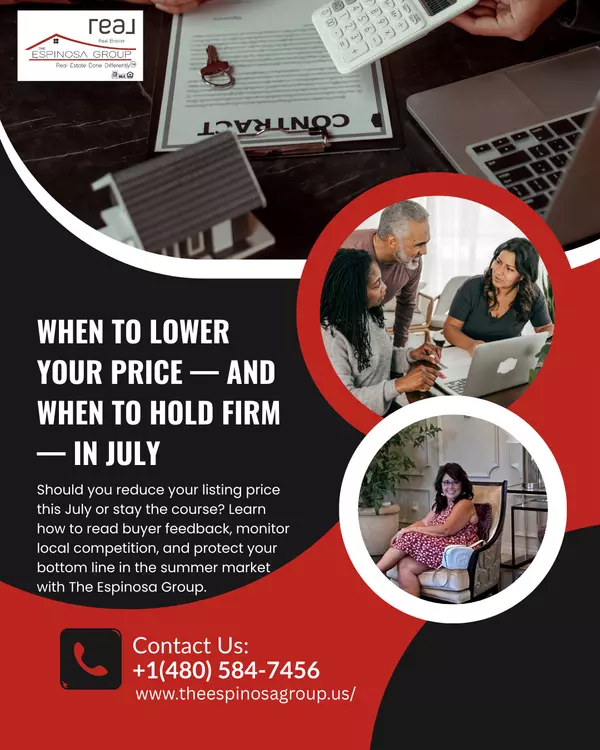How to Purchase a Foreclosed Property (Without the Stress)
Buying a foreclosed property can be a great way to secure a home or investment at a discounted price. However, the process can be complex, competitive, and sometimes stressful if you’re not prepared. By understanding the steps and potential challenges, you can navigate the foreclosure market with confidence and maximize your investment potential.
Step 1: Understand What a Foreclosure Is
A foreclosure occurs when a homeowner cannot meet their mortgage obligations, and the lender takes ownership of the property. These properties are then sold to recoup the lender's losses. Foreclosed properties are typically sold in one of three ways:
- Pre-Foreclosure (Short Sale): The homeowner sells the property, often at a reduced price, to avoid foreclosure.
- Auction Sale: The property is sold to the highest bidder at a foreclosure auction.
- Real Estate Owned (REO) by the Bank: If a property doesn’t sell at auction, it becomes REO, meaning the bank owns it and sells it directly.
Step 2: Determine Your Budget and Financing
Foreclosed properties are often sold “as-is,” meaning you’ll need to account for repairs and maintenance costs in your budget. Here’s how to prepare financially:
Get Pre-Approved for a Mortgage:
- Work with a lender to determine how much you can borrow.
- Some loan programs, like FHA 203(k) loans, allow you to finance the purchase price and renovation costs.
Consider Cash Offers:
- Cash buyers have an edge, especially in competitive foreclosure markets.
- If you don’t have cash, ensure your financing is ready to go to avoid delays.
Prepare for Additional Costs:
- Inspection and appraisal fees.
- Property taxes, closing costs, and potential liens.
- Repairs or renovations needed to make the property livable.
Step 3: Work with an Experienced Real Estate Agent
Foreclosures often require specialized knowledge. Partnering with a real estate agent experienced in foreclosure sales can save you time, money, and stress.
How an Agent Can Help:
- Locate foreclosures in your desired area.
- Provide insights on market trends and comparable sales.
- Guide you through the complex negotiation and purchase process.
Step 4: Research Properties Thoroughly
Foreclosed properties can come with risks, such as hidden damage or unresolved liens. Do your due diligence to avoid unpleasant surprises.
What to Investigate:
- Title Search: Check for any outstanding liens or back taxes.
- Property Condition: Hire a professional home inspector to assess the home’s condition.
- Market Value: Compare the property’s asking price to recent sales in the area.
Step 5: Understand the Buying Process
The steps to purchase a foreclosure depend on how the property is being sold:
Buying Pre-Foreclosure (Short Sale):
- Work with the homeowner and lender to negotiate a price.
- Be patient, as short sales can take longer to close due to lender approval.
Buying at Auction:
- Research auction listings in your area (check county websites or foreclosure platforms).
- Bring proof of financing or cash for the auction.
- Be prepared to pay a deposit or the full price immediately after winning.
Pro Tip: Auction sales often don’t allow inspections beforehand, so be cautious about properties you’re unfamiliar with.
Buying an REO Property:
- Work with a bank or agent to make an offer.
- Banks often sell REO properties below market value, but competition can drive up prices.
- Negotiate repairs or price adjustments based on the home’s condition.
Step 6: Prepare for Renovations
Foreclosed properties are often sold “as-is,” meaning you’ll be responsible for any repairs or updates.
Tips for Renovation Planning:
- Prioritize safety issues like electrical or structural repairs.
- Budget for cosmetic updates, such as paint, flooring, or fixtures.
- Work with contractors who can provide estimates before you close on the property.
Step 7: Close the Deal
Once you’ve negotiated the price and terms, finalize your purchase by:
- Completing a title search to confirm ownership and address any liens.
- Conducting a final walkthrough (if possible).
- Closing the sale with your lender, agent, and title company.
Advantages of Buying a Foreclosed Property
- Discounted Price: Foreclosures are often sold below market value.
- Potential Equity Growth: Renovating and reselling a foreclosure can yield significant returns.
- Diverse Options: From single-family homes to multi-unit buildings, there are many foreclosure types to choose from.
Challenges of Buying a Foreclosed Property
- As-Is Condition: Be prepared for unexpected repairs or hidden damage.
- Competitive Market: Foreclosures often attract investors, leading to bidding wars.
- Lengthy Process: Short sales and auctions can be time-consuming.
Conclusion
Purchasing a foreclosed property doesn’t have to be overwhelming if you plan carefully and work with the right professionals. By researching properties, securing financing, and understanding the buying process, you can find a great deal that fits your needs and budget.
Ready to explore foreclosures in Arizona? At The Espinosa Group, we specialize in helping buyers navigate the foreclosure market.
Let’s turn a foreclosure opportunity into your next dream home or investment!
Categories
- All Blogs (185)
- Home Buying Process (17)
- Home Buying, Selling, and Investing Tips (50)
- how to buy a house (9)
- How to sell your house (11)
- Importance of a Real Estate Agent (1)
- real estate investment strategies (10)
- Real estate Market in Arizona (5)
- Selling a home (18)
- STAGING DIFFERENTLY (32)
- Staging tips for selling (17)
- THE AGENT (4)
Recent Posts












